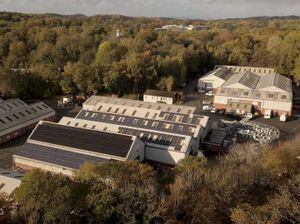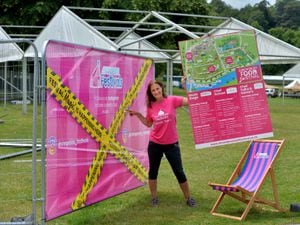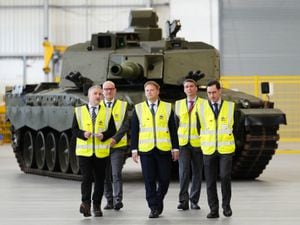Telford business invests £500,000 in long-term plan to combat rising energy prices
A welding company is spending more than £500,000 in a bid to become self-sufficient in its energy needs within the next 10 years.

Fabweld Steel Products (FSP) says it is part of its forward-thinking plan to combat rising energy prices, reduce its carbon footprint and become a green supply partner to customers.
The Telford business, which designs and manufactures standard and bespoke access covers for the construction and built environment industries, has committed to investing more than half-a-million pounds in phase one of its sustainability and self-reliance plan.
Some £250,000 of this investment has already been spent on the installation of a 180,000kWp solar PV to generate power via solar panels on the roof of its production facility, which generates on average 65 per cent of the factory’s total power requirements every year, as well as energy saving measures such as changing all fluorescent lighting to LED bulbs and installing more efficient heating, air conditioning and compressed air systems.
By the end of quarter one of next year, a further £260,000 will be invested, which will include a £140,000 extension to FSP’s Telford factory to include an additional 35kWp of solar panels.
FSP has grown its turnover by 20 per cent over the last two years while using 50 per cent less energy.
Managing director Wayne Carter said: “Our customers are under pressure to ‘green’ their supply chains, reducing the carbon footprint of their projects both up and downstream.
“Our commitment to sustainability and self reliance is not just ‘greenwashing’. We are taking action to reduce our energy use and our carbon emissions, and we can prove this through our ISO 40001 accreditation, and our Carbon Footprint Account Reporting (CFAR)."
FSP is also planning to introduce energy storage batteries and high-speed electric vehicle chargers installed, and the company is investing in electric fleet cars and forklift trucks as alternatives to petrol and diesel models.
The first electric FLT arrived in October and will be recharged solely using power from the PV system.
Mr Carter added: “Our philosophy is that whether you start the journey now or later, we all need to get to net zero by 2050, so why put it off? We are future-proofing our business, helping our customers achieve their environmental targets and making our operations more profitable.”





